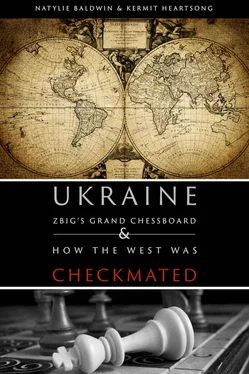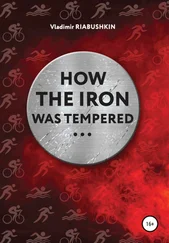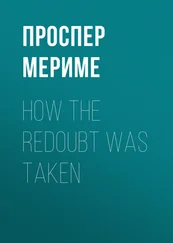Kermit Heartsong - Ukraine - ZBIG's Grand Chess Board & How The West Was Checkmated
Здесь есть возможность читать онлайн «Kermit Heartsong - Ukraine - ZBIG's Grand Chess Board & How The West Was Checkmated» весь текст электронной книги совершенно бесплатно (целиком полную версию без сокращений). В некоторых случаях можно слушать аудио, скачать через торрент в формате fb2 и присутствует краткое содержание. Год выпуска: 2015, Жанр: Политика, на английском языке. Описание произведения, (предисловие) а так же отзывы посетителей доступны на портале библиотеки ЛибКат.
- Название:Ukraine: ZBIG's Grand Chess Board & How The West Was Checkmated
- Автор:
- Жанр:
- Год:2015
- ISBN:нет данных
- Рейтинг книги:4 / 5. Голосов: 1
-
Избранное:Добавить в избранное
- Отзывы:
-
Ваша оценка:
- 80
- 1
- 2
- 3
- 4
- 5
Ukraine: ZBIG's Grand Chess Board & How The West Was Checkmated: краткое содержание, описание и аннотация
Предлагаем к чтению аннотацию, описание, краткое содержание или предисловие (зависит от того, что написал сам автор книги «Ukraine: ZBIG's Grand Chess Board & How The West Was Checkmated»). Если вы не нашли необходимую информацию о книге — напишите в комментариях, мы постараемся отыскать её.
Ukraine: ZBIG's Grand Chess Board & How The West Was Checkmated — читать онлайн бесплатно полную книгу (весь текст) целиком
Ниже представлен текст книги, разбитый по страницам. Система сохранения места последней прочитанной страницы, позволяет с удобством читать онлайн бесплатно книгу «Ukraine: ZBIG's Grand Chess Board & How The West Was Checkmated», без необходимости каждый раз заново искать на чём Вы остановились. Поставьте закладку, и сможете в любой момент перейти на страницу, на которой закончили чтение.
Интервал:
Закладка:
US ambassadors to Poland, Hungary, Romania, and the Czech Republic were encouraged to push strenuously for the sale of American attack helicopters, fighter planes, and missiles to ostensibly prepare their militaries for NATO membership readiness.
The Commerce Department also made it a priority to pitch for arms export sales during the Secretaries’ overseas trade missions, including air shows and weapons exhibitions. And, of course, the Pentagon promotes arms sales through the Defense Security Assistance Agency, which administers the Foreign Military Sales Program.
This lobbying blitz from 1996 to 1998 saw two-thirds of countries receiving the Pentagon’s largest direct subsidy program for weapons exports, the Foreign Military Financing Fund, from the Central/Eastern European area or former Soviet Republics. Each of these nations, including Poland, Hungary, and the Czech Republic as well as Bulgaria, Romania, and the three Baltic states (all part of the second wave of new NATO entries in 2004) received at least $155 million per year during this period to facilitate preparation for NATO membership and “acquisition of NATO compatible equipment.” Tax-payer-subsidized loans worth $647.5 million from the Pentagon’s Central European Defense Loan Fund were provided to “assist in the gradual enlargement of NATO by providing loans to creditworthy Central European and Baltic States for acquisition of NATO-compatible equipment” (Hartung 1998). Another Pentagon loan program, known as Defense Export Loan Guarantee (DELG), provided up to $15 billion in loans for the export of US arms and military paraphernalia to thirty-nine nations — a quarter of which targeted Central/Eastern European nations (Hartung 1998). A spokesperson for the DELG program admitted that a “disproportionate interest” in the $2.4 billion worth of requests they had received came from the Central/Eastern European nations. These subsidized loan programs have a history of simply writing off billions of dollars owed, which increases the burden on US taxpayers.
Another racket of the Pentagon that benefits nations receiving arms exports is the regular practice of giving away what they label “surplus” quantities of military equipment and then ordering brand new equipment to replace it. Not only are American taxpayers getting ripped off by giving away equipment that has been paid for, they are then hit up for the cost of more expensive replacements. The Excess Defense Articles grant program authorized twelve Central/Eastern European nations to receive free US weaponry in fiscal year 1998—eleven of which gained entry into NATO by 2009.
Finally, there were the Export Import Bank loans, which were allowed to fund military exports again in the 1990s after a period of prohibition following abuses during the Vietnam War. The largest loan by this bank for military equipment during this period was for $90 million to Romania to finance the purchase of five Lockheed Martin radar systems.
In all, $1.2 billion was estimated to have been spent on grants and loans to begin NATO enlargement between 1996 and 1998 (Hartung 1998).
By 1998, the US Senate had voted in favor of accession of Poland, Hungary, and the Czech Republic into NATO. Senators William Roth and Barbara Mikulski held a press conference in Warsaw on November 16, on American support of NATO expansion. Senator Roth stated in his remarks that “NATO is a threat to no one. It is a defensive alliance, and all we seek is peace, security and stability for all of Europe.” This echoes Brzeziński’s comments at a Senate Foreign Relations Committee hearing the year before wherein he advocated NATO enlargement and responded to criticisms of the project by denying that the project was anti-Russia or a moral crusade of retribution for historical wrongs against Eastern Europeans. However, neither Roth nor Brzeziński state who or what is the actual threat to Europe that is so grave that it requires not only that NATO continue on, despite the fact that no opposing military alliance exists anymore, but must be enlarged. Both admitted that Russia was not a threat at the time. Indeed Polish Defense Minister Janusz Onysziewicz had stated by the middle of the decade that the motivation to join NATO was “not to defend against a Russian attack. We see that attack as a virtual impossibility.” This is buttressed by the fact that the Central/Eastern European nations, including Poland and the Czech Republic, had all decreased their defense budgets, shortened terms of military conscription, and disbanded many of their army divisions by 1995. Not exactly the actions of nations terrified of the bear next door (Brzeziński, October 1997; Federation of American Scientists).
It appears at this point that the US political class had no intention of using the historic opportunity provided by the end of the Cold War to incorporate Russia into the West as an equal and respected partner, but instead to subdue it through political cooptation and economic exploitation (as we'll see in Chapter 4) and — if that didn’t work — to view it as a future enemy. Either way, money would be made and power maintained by those sitting at the top of the American food chain.
NATO in the 2000s
When three of the four Visegrad states were formally inducted into NATO at its Washington summit in 1999, no new nations were extended official invitations, but the Membership Action Plan (MAP) was soon introduced, which provided a procedural framework for the vetting process and objective criteria for the future membership of any nation — at least, in theory. The MAP procedure was different from the first wave of post-Cold War enlargement that occurred on the unilateral initiative of the US. Nine countries were named for the initial MAP process: Albania, Bulgaria, Estonia, Latvia, Lithuania, Macedonia, Romania, Slovakia, and Slovenia.
In May of 2000, a conference was held in Vilnius, Lithuania attended by the foreign ministers of nine of the MAP countries. The representatives agreed to work cooperatively toward NATO admission for all. They became known as the Vilnius Group and would add Croatia as a member the following year, making it the Vilnius 10.
Four successive summits of the Vilnius Group were held at breakneck speed over the next two-and-a-half years: at Bratislava, Sofia, Bucharest, and Riga.
Their cause was bolstered by a letter signed by seventeen US senators to President Bush, in April of 2001, urging further NATO enlargement. Two months later, Bush gave a speech in Warsaw in which he announced strong support for all the democracies of Europe to be included as full members of the alliance (Tarifa 2007).
The public focus on this latest round of NATO enlargement was on the commitment and capability of the candidates. The Vilnius 10 nations implemented economic, military, and judicial reforms to prepare for accession.
The terrorist attacks of September 11, 2001 created an additional rationale for more rapid expansion of NATO both in terms of membership and geographic reach.
In 2002, NATO invited Romania, Bulgaria, Slovenia, Slovakia and the three Baltic states of Latvia, Lithuania, and Estonia to join the alliance at its summit in Prague. Bruce Jackson — the Lockheed Martin executive, co-founder of the US Committee to Expand NATO, PNAC board member, and a chum of neocon vice president Dick Cheney — called the plan to get the Vilnius 10 into NATO the “Big Bang.” During his testimony before Congress in April of 2003 advocating for NATO enlargement to include seven of the Vilnius 10, he used the now-established rationale that NATO enlargement represented the inclusion of these nations into an innocuous club of peaceful democracies. He cited the words of both Brzeziński and Neoconservative politicians to underscore this dubious claim (Engdhal 2006; Jackson 2003).
Seven of the Vilnius 10 would be admitted in 2004 and two more in 2009. Membership for the tenth candidate, Macedonia, was vetoed by Greece.
Читать дальшеИнтервал:
Закладка:
Похожие книги на «Ukraine: ZBIG's Grand Chess Board & How The West Was Checkmated»
Представляем Вашему вниманию похожие книги на «Ukraine: ZBIG's Grand Chess Board & How The West Was Checkmated» списком для выбора. Мы отобрали схожую по названию и смыслу литературу в надежде предоставить читателям больше вариантов отыскать новые, интересные, ещё непрочитанные произведения.
Обсуждение, отзывы о книге «Ukraine: ZBIG's Grand Chess Board & How The West Was Checkmated» и просто собственные мнения читателей. Оставьте ваши комментарии, напишите, что Вы думаете о произведении, его смысле или главных героях. Укажите что конкретно понравилось, а что нет, и почему Вы так считаете.











